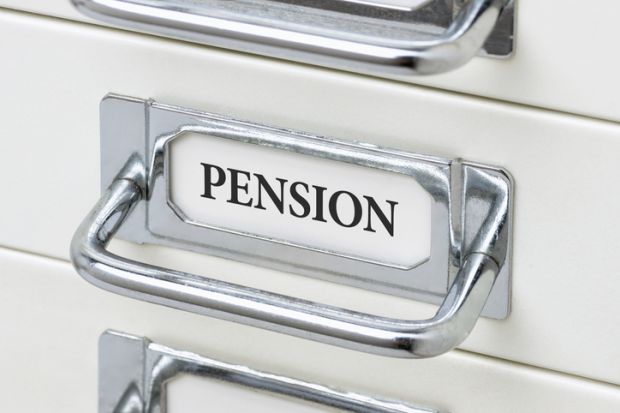Vice-chancellors are exploring whether changing the benefits offered to members of the Universities Superannuation Scheme is the solution to the sector’s deepening pensions crisis.
It comes after the latest valuation of the USS scheme, published on 3 March, said that contributions from employers and staff would need to rise from the current 30.7 per cent of salaries to between 42.1 per cent and 56.2 per cent in order to protect benefits.
Both Universities UK and the University and College Union slammed the rises as “unaffordable” for employers and staff.
In an email to vice-chancellors on 30 March seen by Times Higher Education, Stuart McLean, head of pensions at UUK, says that the group has been working on a way forward and will launch a consultation with USS employers on 7 April.
This will look at “covenant support measures, contribution levels and affordable benefit structures, together with options for addressing the scheme’s high opt-out rate”.
It will include a “change in the balance of DB [defined benefits] and DC [defined contributions] benefits provided”.
The scheme has a hybrid structure of defined benefits, in which retirees receive a guaranteed pension amount, and defined contributions, where incomes are tied to the stock market.
UUK says that it has worked with its actuarial adviser to illustrate the possible outcomes of the latest valuation. Employers will be invited to comment on the options and should also seek the views of their employees who are in the scheme, Mr McLean says.
The email also expresses UUK’s disappointment that the USS had declined vice-chancellors’ request for a formal review of the valuation. UUK requested the review because of the lack of justification over what was being proposed and “odd” decision-making from the USS around on the valuation, particularly over the impact of stronger covenant from universities.
In the letter requesting the review, UUK says that “the scenarios [presented by the USS] seem staged to drive employers to provide even more additional support” and criticises the USS for appearing to attempt to pit employers and employees against each other.
However, USS said that there was “no justifiable basis” for a review and that the most productive way forward was to work with UUK on alternative packages.
Mr McLean says that the reply from USS was “disappointing and the responses to some of the questions remain unconvincing and/or restate positions which have been expressed previously.”
“There are concerning tones to the USS trustees’ other comments on our request for a review, for example its view that a review is not justified in itself and would only be warranted should an alternative proposal or new information emerge,” he says.
“Nevertheless, it is helpful and encouraging that the USS trustee is willing to reconsider its position should the facts change – either in relation to covenant support, future benefits, and post-valuation experience (noting that this could be for better or worse), or a combination of these factors.”
The deficit of the USS fund, which has about 400,000 active and retired members, is now estimated to stand at between £14.9 billion and £17.9 billion.
Register to continue
Why register?
- Registration is free and only takes a moment
- Once registered, you can read 3 articles a month
- Sign up for our newsletter
Subscribe
Or subscribe for unlimited access to:
- Unlimited access to news, views, insights & reviews
- Digital editions
- Digital access to THE’s university and college rankings analysis
Already registered or a current subscriber? Login








